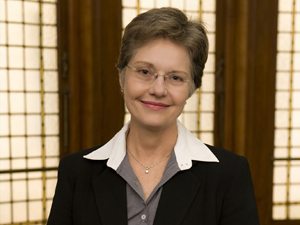
[miningmx.com] – THE Chamber of Mines (CoM) stood behind its chief negotiator, Elize Strydom, describing her as “fearless”, but notably declined to apologise for off-the-record comments attributed to her in which she criticised the Commission for Conciliation, Mediation and Arbitration (CCMA).
The CCMA issued a statement on March 10 in which it accused Strydom of “white-anting”, or undermining the mediation process to find a resolution to a seven-week platinum strike.
This followed an interview Strydom gave to the Sunday Times in which she was quoted as saying: “Senior commissioners of the CCMA need to understand economics, otherwise you cannot be a negotiator, let alone a facilitator or mediator”. This follows a failure to resolve a platinum strike called by the Association of Mineworkers & Construction Union (AMCU) now due to enter its seventh week on Thursday (March 13).
The CCMA called on Bheki Sibiya, CEO of the CoM, to withdraw the comments “or face the consequences”. It asked Sibiya to either endorse her comments or “reject them in their entirety and apologise to the CCMA and all affected parties”.
Sibiya responded in a statement today saying he noted the statement issued by the CCMA. “It is regrettable that an off-the-record discussion with a journalist was reported, and regrets any embarrassment caused to the CCMA and its director and commissioners as a result,” Sibiya said.
He added Strydom was “… an acknowledged expert in labour relations and is a fearless, respected and fair negotiator” who acted in “… the best interest of her constituents and their counterparts”.
“The Chamber of Mines will engage directly with the CCMA regarding any matters directly relating to the negotiations,” he concluded. The statement stopped short of either endorsing Strydom’s comments or apologising for them.
A source close the platinum negotiations expressed surprise at the CCMA’s outburst. “The CCMA is a necessary institution, but it, like all others, has people whose performance can be less than optimal,” she said. “Sometimes those flaws will – and should – emerge in the public domain.
“Surely ours is a robust labour relations framework in which frank discourse should be encouraged and not prohibited,” she said.











